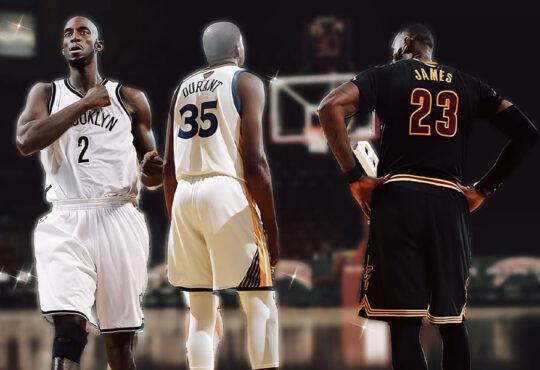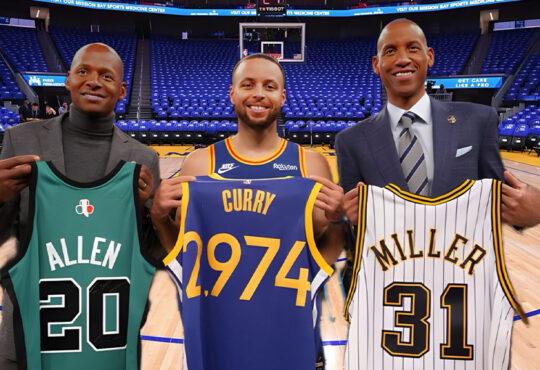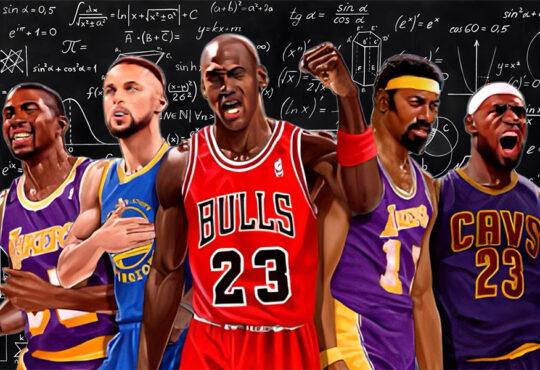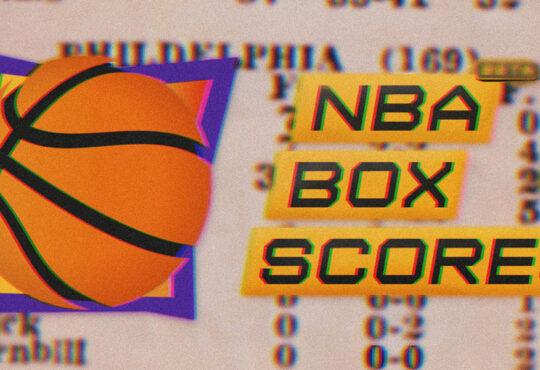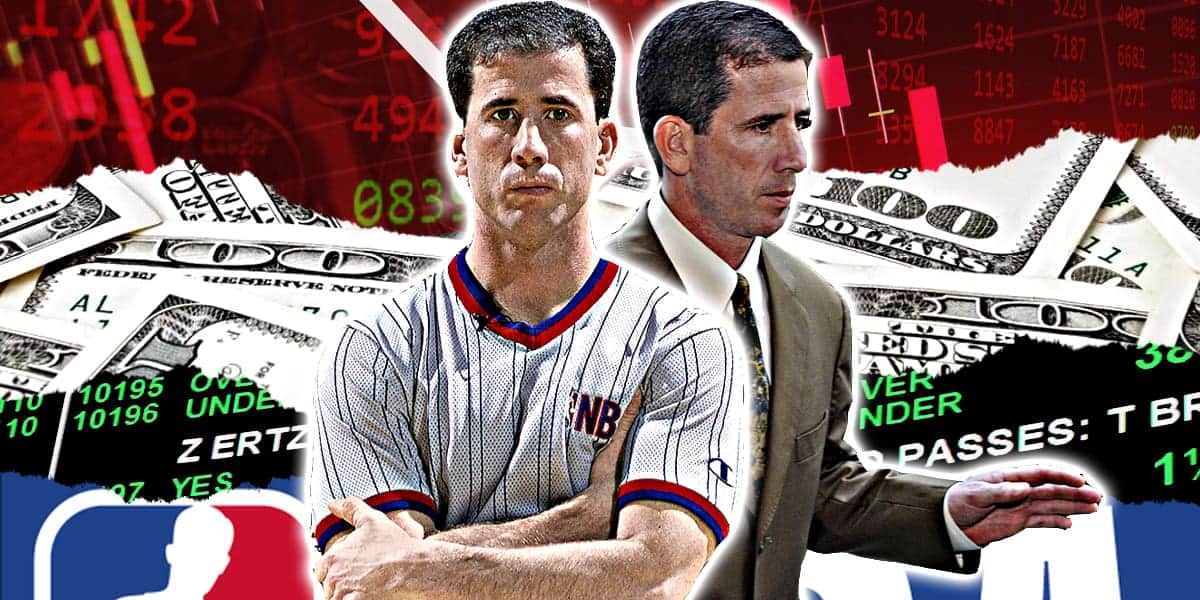
NBA Betting Scandal – The Tim Donaghy Story
The biggest NBA Betting Scandal that the NBA has ever faced happened in 2007 when news broke out that an NBA referee has been fixing the point spread on games that he has been officiating in order to gain a financial benefit.
Who was involved in the NBA Betting Scandal? In July 2007, the NBA betting controversy included the National Basketball Association (NBA) and allegations that an NBA referee wagered on professional basketball games using his knowledge of connections between officials, coaches, players, and owners.
The Preliminary Report
New York Post’s columnist Murray Weiss reported on an investigation conducted by the FBI into allegations of an NBA referee betting on games and controlling the point spread while officiating.
Shortly after, the name of Tim Donaghy was all over the news and the scandal brought huge attention in the sports world.
Donaghy resigned from the league on July 9, 2007, right after the news broke out, and finished his 13-year officiating career with 772 regular-season games and 20 playoff games.
It was revealed that Donaghy, who had a gambling problem, placed tens of thousands of dollars in bets on games during the 2005–06 and 2006–07 seasons and had been approached by low-level mob associates to work on a gambling scheme. Mike Missanelli of The Stephen A. Smith Show suggested that Donaghy had gotten himself into huge debt and tried to make it up by betting on games he officiates.
NBA Commissioner at the time, David Stern immediately went out with a statement saying: “We would like to assure our fans that no amount of effort, time or personnel is being spared to assist in this investigation, to bring to justice an individual who has betrayed the most sacred trust in professional sports, and to take the necessary steps to protect against this ever happening again.
In late July, US Representative Bobby Rush of Illinois, the chairman of the Energy and Commerce, Trade and Consumer Protection Subcommittee, asked to meet with Stern regarding the Donaghy matter. In a letter to Stern, Rush indicated that he might call a hearing “should the facts warrant public scrutiny.” He also said that the affair could potentially be “one of the most damaging scandals in the history of American sports.”
The same day, federal sources told the New York Daily News that Donaghy would surrender to the FBI and plead guilty to gambling charges. The Daily News also learned that the bookies in the scandal were two high school classmates of Donaghy’s who embellished their mob ties. The Daily News reported that at his friends’ request, Donaghy passed word about the crews working the games on which they planned to bet. The Associated Press identified one of the men as James Battista, a former owner of a sports bar in Havertown, Pennsylvania, a Philadelphia suburb. Battista’s lawyer told the AP that his client expected to be indicted.
Pleads guilty to betting on games he oversaw
At his home in Bradenton, Donaghy did not initially comment on his situation. He reportedly claimed to be “the butler” to visiting reporters and turned his sprinklers on a freelance photographer for the New York Times when he got too close. His wife Kimberly, passed a note to reporters telling them not to bother asking them any questions.
In mid-August, Donaghy appeared in a Brooklyn federal court and pleaded guilty to conspiracy to engage in wire fraud and transmitting wagering information through interstate commerce.
Donaghy told U.S. District Judge Carol Amon that he used coded language to tip Battista about players’ physical condition and player/referee relations. In doing so, Donaghy disclosed classified information that he obtained as an NBA referee.
Tim Donaghy Sentencing: NBA Betting Scandal
Donaghy initially received $2,000 per correct pick, but his calls were so accurate that Battista increased his take to $5,000. In total, he received $30,000 to pass inside information to the bookies.
Another high school friend of Donaghy, Thomas Martino, acted as the middle man. Donaghy also admitted that he had a severe gambling addiction for which he was taking antidepressants.
Donaghy specifically admitted to passing information about two games during the 2006–07 season. Prosecutors also said that Donaghy bet on games himself. Donaghy was fined $500,000 and also had to pay at least $30,000 in restitution.
Donaghy was released on a $250,000 bond and awaited sentencing on January 25, 2008.
In June 2008, the NBA filed a demand that Donaghy reimburses the league for the costs of his airfare and meals, complimentary game tickets, and other expenses, including $750 in shoes.
Donaghy’s lawyer said that this was the league trying to retaliate against Donaghy for his misconduct.
A judge delayed sentencing to allow for more time to decide how much restitution Donaghy and two co-conspirators should pay the NBA for their roles in the betting scandal. The NBA claimed Donaghy owes it $1.4 million, including $577,000 of his pay and benefits over four seasons, plus hefty legal fees and other expenses related to an internal investigation. His lawyer argued that the punishment should apply to only one season, a position supported by the government in court papers.
According to the Associated Press, Andrew Thomas, the former county attorney for Maricopa County, Arizona, asked the NBA and FBI if Donaghy intentionally miscalled two Phoenix Suns road playoff games. The games in question occurred on April 29, 2007, versus the Los Angeles Lakers and May 12, 2007, versus the San Antonio Spurs. In a letter to Stern and FBI Director Robert Mueller, Thomas said that Donaghy’s conduct may have violated Arizona criminal law, and could face charges there.
On June 10, 2008, Donaghy’s attorney filed a court document alleging, among other things, that Game 6 of the 2002 Western Conference Finals between the Los Angeles Lakers and Sacramento Kings had been fixed by two referees.
The letter states that Donaghy “learned from Referee A that Referees A and F wanted to extend the series to seven games. Tim knew referees A and F to be ‘company men’, always acting in the interest of the NBA, and that night, it was in the NBA’s interest to add another game to the series.”
The Lakers won Game 6, attempting 18 more free throws than the Kings in the fourth quarter, and went on to win the 2002 NBA Finals. The Western Conference Finals were the only seven-game series that year.
The document claimed that Donaghy told federal agents that to increase television ratings and ticket sales, “top executives of the NBA sought to manipulate games using referees.”
It also said that NBA officials would tell referees to not call technical fouls on certain players and stated that a referee was privately reprimanded by the league for ejecting a star player in the first quarter of a January 2000 game.
Stern denied the accusations, calling Donaghy a “singing, cooperating witness”. Federal authorities investigated Donaghy’s claims and found no evidence to support them. About this, AUSA Jeffrey Goldberg told the court, “we’ve never taken the position that Mr. Donaghy has lied to us. But there is a difference between telling the truth and believing you’re telling the truth and finding out later that a number of the allegations don’t hold any water.”
Tim Donaghy Sentencing – Media Reaction
On July 29, 2008, Donaghy was sentenced in the United States District Court for the Eastern District of New York to 15 months in prison for his participation in the gambling scandal. Donaghy could have faced up to 33 months, but Judge Carol Amon reduced his sentence to 15 months (two 15-month terms served concurrently, followed by 3 years of supervised release) in exchange for his cooperation.
Judge Amon noted she held Donaghy “more culpable” than his two co-conspirators and added, “Without Mr. Donaghy, there was no scheme.” His lawyer, John Lauro, asked for probation, but the request was denied. Donaghy apologized in court: “I brought shame on myself, my family, and the profession.”
Battista and Martino were sentenced earlier that month, earning sentences of 15 months and 366 days, respectively.
Donaghy served his sentence in the federal prison camp in Pensacola, Florida, where started to write his memoir, Blowing the Whistle: The Culture of Fraud in the NBA.
The book was to have covered his NBA career, described his dealings with the “underworld” during the betting scandal, and explained how he would determine the winning team in the games he refereed.
Donaghy also promised to “discuss the relationship that players, coaches, and referees have with each other.”
The book was due to be published in October 2009. However, Donaghy’s publisher, Triumph Books, canceled it because of liability concerns. Pat Berdan, Donaghy’s liaison with Triumph, said the book was canceled after the NBA threatened legal action—which the NBA denies.
Donaghy found a new publisher, VTi-Group, willing to release the book, which was renamed Personal Foul: A First-Person Account of the Scandal That Rocked the NBA. The book was released in December 2009.
Donaghy claims that while imprisoned, he was attacked and threatened. He also claims that in November 2007 a man claiming to be an associate of the New York Mafia struck Donaghy with a paint roller extension bar, resulting in injuries to his knee and leg which required surgery.
Donaghy was released from prison after serving 11 months and was due to finish his sentence in a recovery house near Tampa, Florida, where he was to be treated for his gambling addiction, as mandated by the court. He was arrested and put in the county jail in late August after being caught at a health club without permission when he should have been at work. His lawyer and his ex-wife both insisted that Donaghy should not have been taken into custody, as he was allowed to visit the center to rehabilitate his injured knee.
In November 2009, Donaghy was released from prison in Hernando County after serving out the remainder of his sentence.
Donaghy sued VTi-Group, the publisher of his memoir, for not paying him. In June 2012, a jury found VTi liable for breach of contract. Donaghy was awarded $1.3 million.
In April 2014, Donaghy claimed that the league office was going to push referees to fix playoffs games to have the Brooklyn Nets beat the Toronto Raptors, so they could advance to the second round and face the Miami Heat because it would be good for ratings. On May 4, 2014, the Nets eliminated the Raptors after winning game seven of the series by a single point.
Donaghy was featured in the 2016 released documentary film Dirty Games – The dark side of sports.
In November 2019, the movie Inside Game was released in theaters. The official film description focuses on Donaghy’s take on the NBA betting scandal.
Tim Donaghy Sentencing – Changes to the Referee Conduct
As a result of the betting scandal, Commissioner David Stern revised the guidelines on the behavior of NBA referees during the Board of Governors’ meeting in 2007.
Despite the labor agreement for referees, which restricted them from participating in almost all forms of gambling, it was revealed that about half of the NBA’s officials had made bets in casinos, albeit not with sportsbooks. In addition, all referees had admitted to engaging in some form of gambling.
Stern stated that the “ban on gambling is absolute, and in my view, it is too absolute, too harsh and was not particularly well-enforced over the years.”
The gambling rules were revised to allow referees to engage in several forms of betting but not in sports.
There were several other referee-related rule changes made: the announcement of referees of a game was moved from 90 minutes before tip-off to the morning of the game, to reduce the value of the information to gamblers; referees received more in-season training and counseling on gambling; more thorough background checks were carried out; the league declared its intention to analyze the statistical relationship between NBA games and referees’ gambling patterns for those games, and the interactions between referees and NBA teams were made easier and more formal.
NBA Betting Scandal – The Tim Donaghy Story
If you enjoyed this article about Tim Donaghy and the biggest NBA betting scandal in NBA history, check out our blog for more great NBA content!

